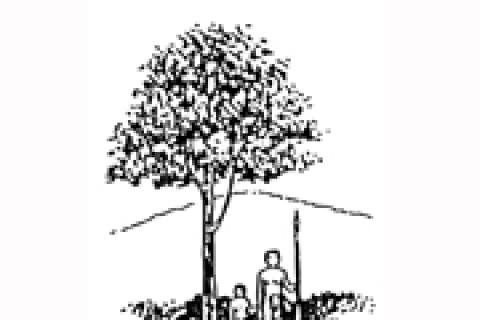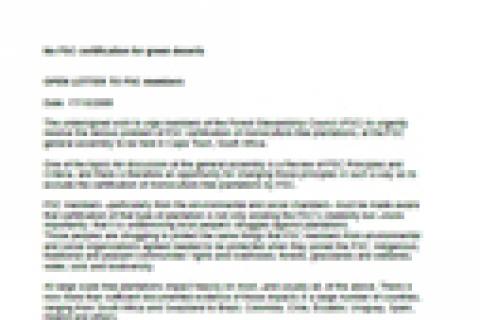Since the beginning of the decade, all the areas of expansion of oil palm plantations have coincided geographically with areas of paramilitary presence and expansion, to the extent that some of the new plantations being developed have been financed as farming projects for the same demobilised paramilitary from the AUC (Autodefensas Unidas de Colombia – United Self-Defence Force of Colombia) who had previously made incursions into these very areas.
Other information
In Europe and the US, palm oil is being promoted as an agrofuel that will allegedly prevent the increase of carbon dioxide emissions to the atmosphere. Of course, it is the large scale and not the small-scale diversified model which is being implemented and in fact it’s just a way of delaying the imperative need of changing energy-intensive production, consumer and trade patterns. Oil palm plantations for agrofuel just add to the already damaging effects of palm tree plantations for industrial use.
Paper is a wonderful material, which for centuries has served for a fertile exchange of ideas among human beings. For us all who use it as an essential vehicle to share what we think, imagine, dream, know or believe we know, paper is a wonderful tool that we want to be able to continue using ... but not at the expense of people and the environment.
As people who live in this reality, we are aware of the serious injustices and inequalities - social and environmental – arising from the world production and consumption of paper.
The Gates and Rockefeller Alliance for a Green Revolution in Africa (AGRA) initiative has landed on Africa announcing that it will help small-scale farmers go commercial. What does this mean?
Behind the millionaire funding projects lies the promotion of biotechnology in agriculture. African agriculture will be more dependent on chemicals, monocultures of hybrid seeds, and genetically modified crops.
Buxa was one of those forests which the British foresters boasted of. Originally grassland and Sal forests in stony highlands, the area was irreversibly altered when the colonial foresters moved in around 1865 and banished the indigenous swidden agriculturists like the Rava, the Mech, the Dukpa and the Garo. Evergreen trees colonised the empty spaces rapidly as the forest fires got "controlled", and the foresters came to realize that they could not have new Sal plantations unless the fire motif was re-introduced.
In 1989, WRM and Sahabat Alam Malaysia (Friends of the Earth) produced the publication “The Battle for Sarawak’s Forests”, which documented not only the destruction of forests and forest peoples’ livelihoods in Sarawak, but also the local resistance process, which included major road blockades established as from 1987 by local communities for stopping the entry of logging trucks into their territories.
In late May, aerial photos taken during a fly-over piloted by the coordinator of the Ethno-Environmental Front of FUNAI (the National Indigenous Foundation of Brazil) confirmed the existence of indigenous people living in voluntary isolation on the border between the Brazilian state of Acre and Peru. They are members of one of four indigenous ethnic groups living in isolation in this area.
The expansion of large-scale plantations --either crops or trees-- for the production of liquid agrofuels such as bioethanol and biodiesel is increasing in many Southern countries –with harmful impacts on people and the environment.
Now, even the FAO admits the risks. A recently published FAO report looks into agrofuel production and their gendered impacts, explaining that it may increase the marginalization of women in rural areas, threatening their livelihoods.
On the first days of this month the Tasmanian people got to know of a deal that had been struck four months before between their government and the timber company Gunns. The deal, called the Sovereign Risk Agreement, provides that taxpayers should fund the company along 20 years with $15 million in case its wood supply is compromised by any reason. (1)
Biofuels – bio-diesel oil extracted from plants to replace high cost fossil fuels – have become controversial as the biofuel plantations are taking away lands mainly used, in particular for food production, by local communities.
In Burma, the ruling military junta has embarked on a massive expansion of biofuel plantations through forced confiscation of lands as well as arrests, fines, and beatings of farmers.
In November 2007, several representatives from World Rainforest Movement visited Komatiland Forests' operations at Brooklands in Mpumalanga province in South Africa.
By the WRM
The CBD recognized in 1992 the “vital role of women in the conservation and sustainable use of biological diversity” and affirmed “the need for the full participation of women at all levels of policy-making and implementation for biological diversity conservation” (Preamble; paragraph 13).
In spite of that, women have remained as invisible as ever within the deliberations of the CBD’s conferences of the parties.


